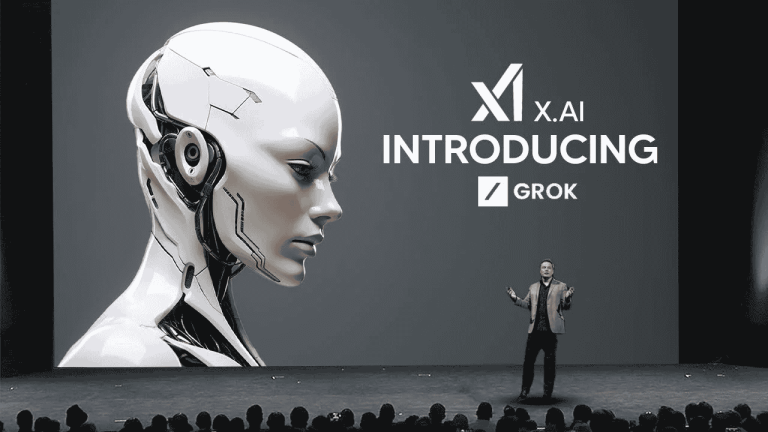Martin Fowler: A Comprehensive Biography And OverView
Martin Fowler is an influential figure in the world of software development and a renowned author. He has made significant contributions to the field of software engineering, particularly in the areas of software design patterns, refactoring, and agile methodologies. His work has helped shape modern software development practices, and his insights continue to inspire developers and software engineers worldwide. This biography explores his life, career, contributions, and lasting impact on the software development community.
Early Life and Education
Martin Fowler was born on April 18, 1963, in the United Kingdom. His early life and education played a significant role in shaping his career in software development. Not much is publicly known about his early life, but it is known that he attended University of Reading in England. He graduated with a degree in Mathematics and Computer Science, which laid the foundation for his future career as a software engineer.
Although his academic background in mathematics and computer science provided a strong technical foundation, it was his passion for software engineering and design that ultimately defined his career. Fowler’s interest in software development emerged early, and he would go on to apply the concepts and principles he studied in academia to real-world software projects.
Career Beginnings: Entry into Software Engineering
Fowler’s career began in the early 1980s when he joined the growing software industry. At that time, software engineering was still developing as a discipline, and many of the concepts that are common today were still being refined. Fowler began working at ThoughtWorks, a global software consultancy, in 1999, where he would go on to make some of his most important contributions to software development practices.
Through his work at ThoughtWorks and other companies, Fowler gained invaluable experience in building complex software systems and developing solutions for a variety of industries. Over the years, he has worked with a variety of clients, from large enterprises to startups, helping them improve their software development processes and build more robust, scalable systems.
Martin Fowler’s Major Contributions
1. Refactoring
One of Martin Fowler’s most significant contributions to the software development community is his work on refactoring. Refactoring refers to the process of improving the structure of existing code without changing its behavior. In 1999, Fowler published the book “Refactoring: Improving the Design of Existing Code,” which became an instant classic in the field.
In the book, Fowler introduced the concept of refactoring as a way to make software systems more maintainable, readable, and extensible. The book provided developers with practical techniques for improving code quality and dealing with complex codebases. Fowler’s work on refactoring revolutionized how developers think about code quality and has been instrumental in shaping modern development practices.
2. Software Design Patterns
Another area where Fowler has made significant contributions is in the field of software design patterns. Fowler’s book, “Patterns of Enterprise Application Architecture,” published in 2002, is one of the key texts on design patterns in the software industry. The book provides a comprehensive catalog of reusable design patterns that help software developers address common problems in enterprise application development.
Design patterns are proven, reusable solutions to common software design problems. Fowler’s work helped popularize the concept of design patterns, which are now a staple of modern software engineering. His contributions to this field have enabled developers to create more efficient, scalable, and maintainable software systems.
3. Agile Software Development and Agile Methodology
Martin Fowler is also one of the prominent advocates of Agile software development. In the early 2000s, Fowler became deeply involved in the Agile movement, which sought to provide a more flexible, iterative, and collaborative approach to software development. Agile methodologies emphasize individuals and interactions, working software, customer collaboration, and responding to change.
Fowler contributed to the Agile Manifesto in 2001, a foundational document for the Agile movement. This manifesto outlines the core values and principles of Agile software development. His work on Agile methodologies has influenced countless software development teams around the world, making software development more adaptable to change and more focused on delivering value to customers.
In addition to his role in the Agile movement, Fowler has written extensively on Agile principles, including in his book “Continuous Delivery: Reliable Software Releases through Build, Test, and Deployment Automation” (co-authored with Jez Humble), which explores best practices for automating the software delivery pipeline.
4. Domain-Driven Design (DDD)
Martin Fowler is also well-known for his work on Domain-Driven Design (DDD), which focuses on creating software systems that align closely with the business domain they are designed to serve. While Fowler didn’t coin the term (Eric Evans did), he has been an influential advocate of DDD principles, which emphasize collaboration between domain experts and developers, and creating a shared understanding of the business problems.
Fowler has written several articles and blogs on DDD and related topics. His contributions have helped software developers and architects create more flexible and business-relevant applications by focusing on the domain and using techniques such as Ubiquitous Language and Bounded Contexts.
5. Software Development Books and Writing
Aside from his technical contributions, Martin Fowler is a prolific author, having written several influential books on software development. Some of his most notable works include:
- “Refactoring: Improving the Design of Existing Code” (1999)
- “Patterns of Enterprise Application Architecture” (2002)
- “UML Distilled: A Brief Guide to the Standard Object Modeling Language” (1997)
- “Continuous Delivery: Reliable Software Releases through Build, Test, and Deployment Automation” (2010)
These books have been widely read and remain essential texts for software engineers and architects. Fowler’s clear writing style, combined with his deep technical expertise, has made his books accessible and useful to developers at all levels.
Personal Life and Family
Martin Fowler is known for being relatively private about his personal life. However, it is known that he is married and has children. Fowler maintains a low-key public persona, and his personal life is rarely the subject of media attention. Much of his public presence is focused on his professional work in software engineering and his contributions to the development community.
Fowler’s Influence on Modern Software Development
Martin Fowler’s influence on modern software development cannot be overstated. His work in refactoring, design patterns, Agile methodologies, and domain-driven design has fundamentally changed how developers approach coding and software architecture.
His emphasis on writing clean, maintainable code, as well as adopting iterative, agile practices, has shaped the way software is built, tested, and deployed in the 21st century. Fowler’s focus on improving the design of existing code and delivering software that meets the needs of the business has made him one of the most respected figures in software engineering.
Moreover, Fowler’s work has contributed significantly to the growth of software craftsmanship as a discipline. He advocates for professionalism and continuous improvement in the development process, pushing developers to learn, grow, and adopt best practices in software development.
Awards and Recognition
Throughout his career, Martin Fowler has received numerous accolades for his contributions to software engineering. He has been recognized as a thought leader and influential figure in the world of software development, and his books and articles are widely regarded as essential reading for aspiring software engineers.
In addition to his recognition in the software community, Fowler has been honored with speaking engagements at various conferences, including those related to Agile development, software architecture, and design patterns. He continues to be a highly sought-after keynote speaker and educator.
Legacy and Future Impact
Martin Fowler’s legacy in the software engineering world is firmly established. His contributions to improving software design and development practices have made a lasting impact on the industry. His principles of refactoring, clean code, Agile methodologies, and design patterns have influenced countless software teams, leading to better, more maintainable software solutions.
As software development continues to evolve, Fowler’s work will likely remain relevant for years to come. His insistence on flexibility, collaboration, and improving the craft of software development will continue to resonate as developers face new challenges in an increasingly complex technological landscape.
Conclusion
Martin Fowler is more than just a software engineer; he is a visionary whose work has transformed the world of software development. His contributions to refactoring, Agile methodologies, and design patterns have paved the way for modern development practices that focus on creating cleaner, more maintainable, and efficient software. As a writer, educator, and advocate for better software practices, Fowler’s impact on the industry will be felt for generations to come.
Through his books, blogs, and speaking engagements, Martin Fowler has left an indelible mark on the software development community, and his teachings continue to guide software engineers in their quest to build better systems and applications. His work has not only shaped the way we write code but also how we think about the process of software development itself.
Summary:
- Born: April 18, 1963, United Kingdom
- Key Contributions: Refactoring, Software Design Patterns, Agile Methodologies, Domain-Driven Design
- Major Books: Refactoring, Patterns of Enterprise Application Architecture, Continuous Delivery
- Influence: Thought leader in software engineering, shaping modern software practices, advocating for clean, maintainable code





